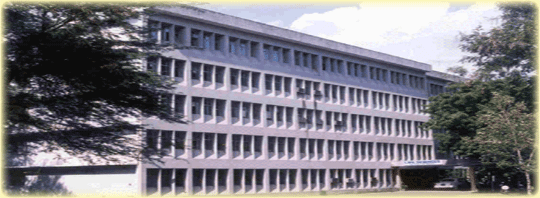The Indian Institute of Technology Bombay India
The Indian Institute of Technology Bombay (abbreviated IITB or IIT Bombay) is a public engineering institution located in Powai, Mumbai, India. It has been ranked among the top engineering colleges in India. It is the second-oldest institute of the Indian Institutes of Technology system.
IIT Bombay was founded in 1958. It was the first IIT to be set up with foreign assistance. The funds came from UNESCO in roubles from the Soviet Union. In 1961, the Parliament decreed IITs as Institutes of National Importance. A high-power committee of Government of India recommended in 1946 establishment of four higher institutes of technology to set the direction for the development of technical education in the country. Planning for the Institute at Bombay began in 1957 and the first batch of 100 students was admitted in 1958.Since its establishment in Powai, the institute has physically expanded to include more than 584 major buildings with a combined area of more than 2.396 gross square feet (550 acres or 2.22 km²).
IIT Bombay has a comprehensive graduate program offering doctoral degrees in Science, Technology, Engineering and Mathematics. Currently IIT Bombay has a total of 14 academic departments, six centers, one school, and three interdisciplinary programmes. Over the last 53 years, around 39,000 engineers and scientists have graduated from the institute.Educational programmes here extend beyond the physical sciences and engineering into humanities and social sciences such as Economics, English, Philosophy, Psychology and Sociology and into management studies. Over the years, the institute has also created a niche for its innovative short-term courses through continuing education and distance education programmes.
Establishment: 1958
Institution Type: Institute of National Importance
Membership: The University is a member of The Association of Indian Universities (AIU)
UGC Recognition: Yes
UGC Grants: Not Funded By UGC
Other Information about the Institution
The Institute is ranked #4 amongst Top Indian Engineering Colleges as per India Today-AC Nielsen-ORG Marg Survey of Colleges for 2006-07. Mint C-Fore Top Government Engineering College Rankings for 2008: #3 of 50
CONTACT INFORMATION
The Indian Institute of Technology Bombay India
This institution is also popular as Indian Institute of Technology Mumbai
Powai
Mumbai
Maharashtra
India
Pin Code: 400076
Telephone: +91-22-2572-2545
Fax: +91-22-2572-3480
Official Website / Institution home page: iitb.ac.in
Email: director@admin.iitb.ernet.in / registrar@admin.iit
The Indian Institute of Technology Bombay (abbreviated IITB or IIT Bombay) is a public engineering institution located in Powai, Mumbai, India. It has been ranked among the top engineering colleges in India. It is the second-oldest institute of the Indian Institutes of Technology system.
IIT Bombay was founded in 1958. It was the first IIT to be set up with foreign assistance. The funds came from UNESCO in roubles from the Soviet Union. In 1961, the Parliament decreed IITs as Institutes of National Importance. A high-power committee of Government of India recommended in 1946 establishment of four higher institutes of technology to set the direction for the development of technical education in the country. Planning for the Institute at Bombay began in 1957 and the first batch of 100 students was admitted in 1958.Since its establishment in Powai, the institute has physically expanded to include more than 584 major buildings with a combined area of more than 2.396 gross square feet (550 acres or 2.22 km²).
IIT Bombay has a comprehensive graduate program offering doctoral degrees in Science, Technology, Engineering and Mathematics. Currently IIT Bombay has a total of 14 academic departments, six centers, one school, and three interdisciplinary programmes. Over the last 53 years, around 39,000 engineers and scientists have graduated from the institute.Educational programmes here extend beyond the physical sciences and engineering into humanities and social sciences such as Economics, English, Philosophy, Psychology and Sociology and into management studies. Over the years, the institute has also created a niche for its innovative short-term courses through continuing education and distance education programmes.
Establishment: 1958
Institution Type: Institute of National Importance
Membership: The University is a member of The Association of Indian Universities (AIU)
UGC Recognition: Yes
UGC Grants: Not Funded By UGC
Other Information about the Institution
The Institute is ranked #4 amongst Top Indian Engineering Colleges as per India Today-AC Nielsen-ORG Marg Survey of Colleges for 2006-07. Mint C-Fore Top Government Engineering College Rankings for 2008: #3 of 50
CONTACT INFORMATION
The Indian Institute of Technology Bombay India
This institution is also popular as Indian Institute of Technology Mumbai
Powai
Mumbai
Maharashtra
India
Pin Code: 400076
Telephone: +91-22-2572-2545
Fax: +91-22-2572-3480
Official Website / Institution home page: iitb.ac.in
Email: director@admin.iitb.ernet.in / registrar@admin.iit



















